My first month here in Rwanda was spent mostly in a classroom and lab as well as out exploring the capital, Kigali. While I thought I was learning a lot at the time, I have found so far in this second month at my assigned hospital I have learned so much more already.
I am currently stationed in Musanze, a town in the Northern Province of Rwanda. I am working with my partner, Tracy, at Ruhengeri Hospital which is a national referral hospital. We have one BMET at the hospital who is in charge of all the medical equipment as well as overseeing maintenance and the surrounding 14 clinics. He is a very busy man, but also an amazing teacher.
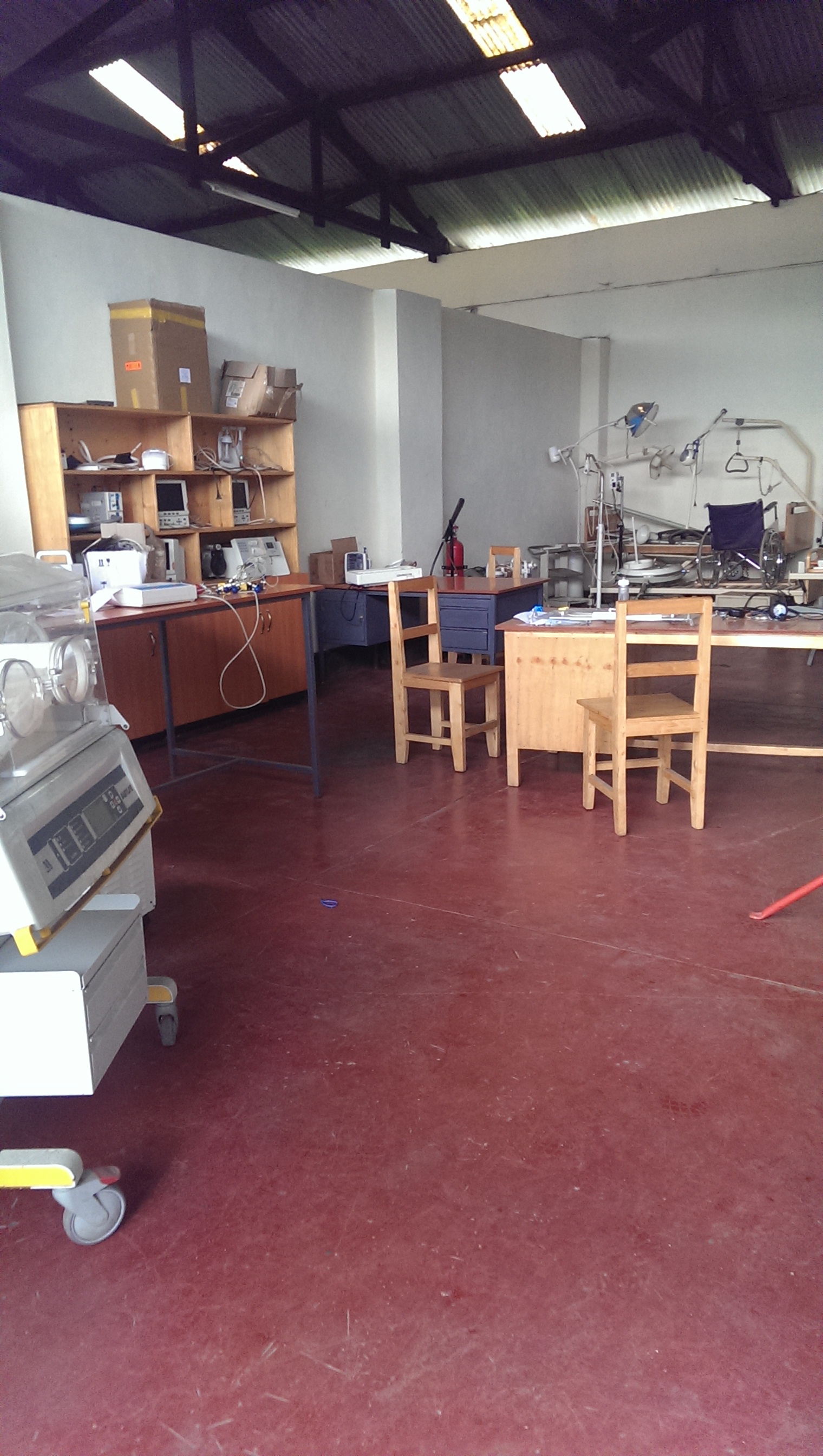

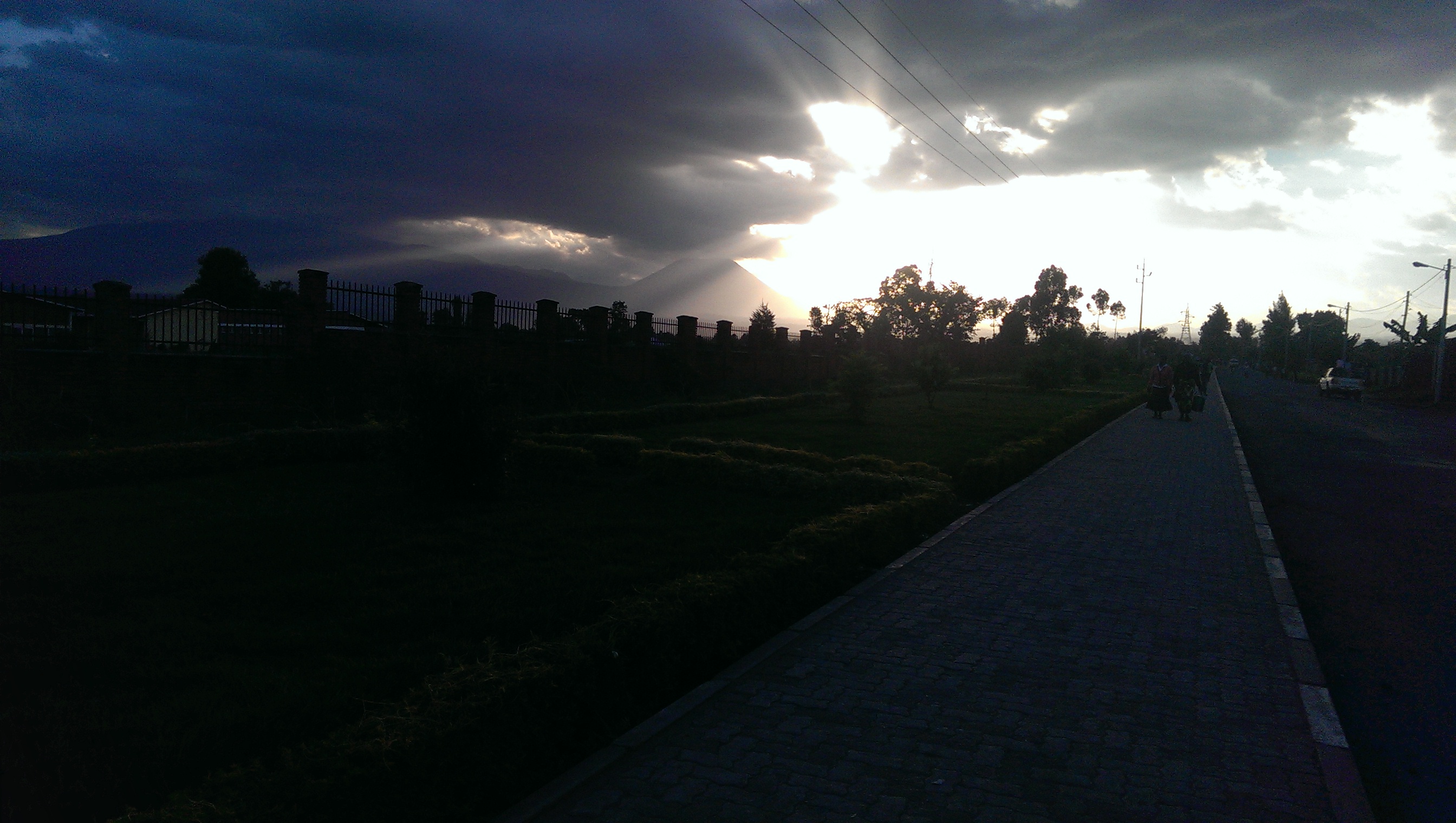
When I set out on this journey one of my biggest goals was to be able to immerse myself in the culture here and come to understand what it means to try to befriend and understand people that are so different from me. A huge part of that in my mind was gaining their trust by learning their language. In the first month we took Kinyarwanda 3 days a week for 4 hours each day. I learned a lot while I was in class and was able to practice it with my host family and in Kigali. I became very proficient at greetings, asking for a bucket to wash clothes, asking when dinner is, getting a moto taxi, and bargaining in the market. Since 2009 English has been taught in the schools here so in the capital it is easy to find someone that speaks English and you can work your way through many sitautions without speaking Kinyarwanda.
However, in Musanze, which is much smaller and more rural, fewer people speak English so it is much more important to practice here. I have also found that the doctors trust me more when I am able to at least introduce myself in Kinyarwanda. A typical introduction would go something like this: Muraho (hello). Nitwa Anne (I am called Anne). Ndi umusitajeri hano (I am an intern here). Hamoka muri Amerika (I am from America). Witwande (what is your name)? Although it is not much, that introduction alone changes the demeanor of the hospital staff almost immediately. I think because the language is so different and so specific to Rwanda muzungus (westerners) do not usually try to learn it. When I can come in and prove that I am at least trying to learn the language I gain a lot of respect.
My assigned job out here is to fix broken medical equipment, service other pieces as needed, and train staff on how to use the devices properly when it is warranted. Although I had confidence in my BME education and the lectures and labs here, I was not certain that my partner and I would fix more than 10 or so pieces of equipment. I also did not believe that one of the main issues would be user error. I was wrong. Within the first week Tracy and I had fixed 13 pieces of equipment including a portable x-ray machine, centrifuge, ECG, mixer, computer, patient monitor, and many more. All of the fixes were unique from needing to weld pieces back together, to soldering in a new power switch, and finding a faulty fuse and ordering a new one. This week, we spent half a day training a doctor on how to use two different EKG machines. She kept saying that they were broken, but they were in fact just uncalibrated. We trained another nurse to use a handful of nebulizers that she claimed were broken and we are in the process of trying to convince pediatrics that a certain automated patient monitor works if it is set up properly. They do not trust the machine and it is hard to explain in Kinyarwanda exactly how to use it.
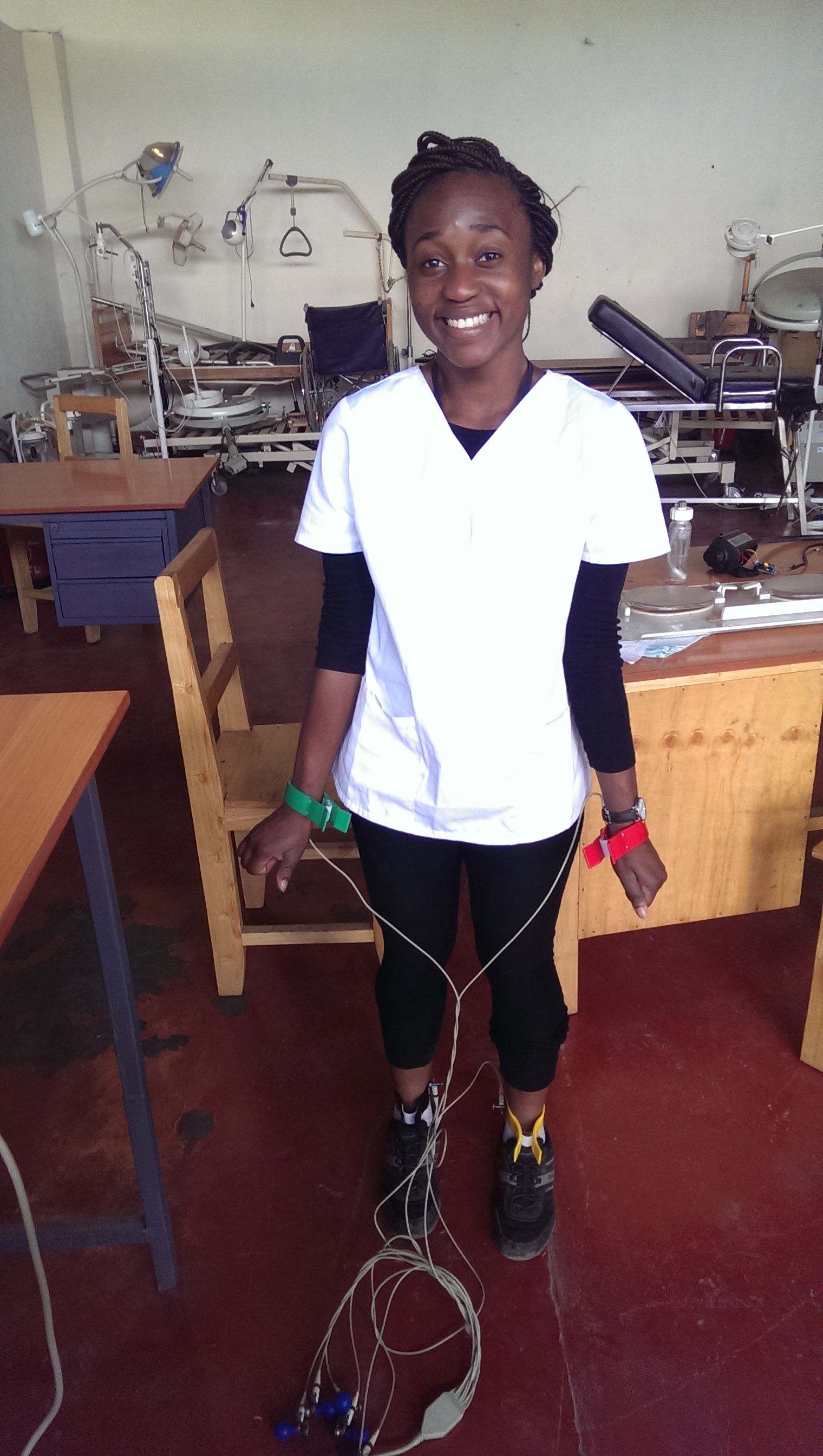
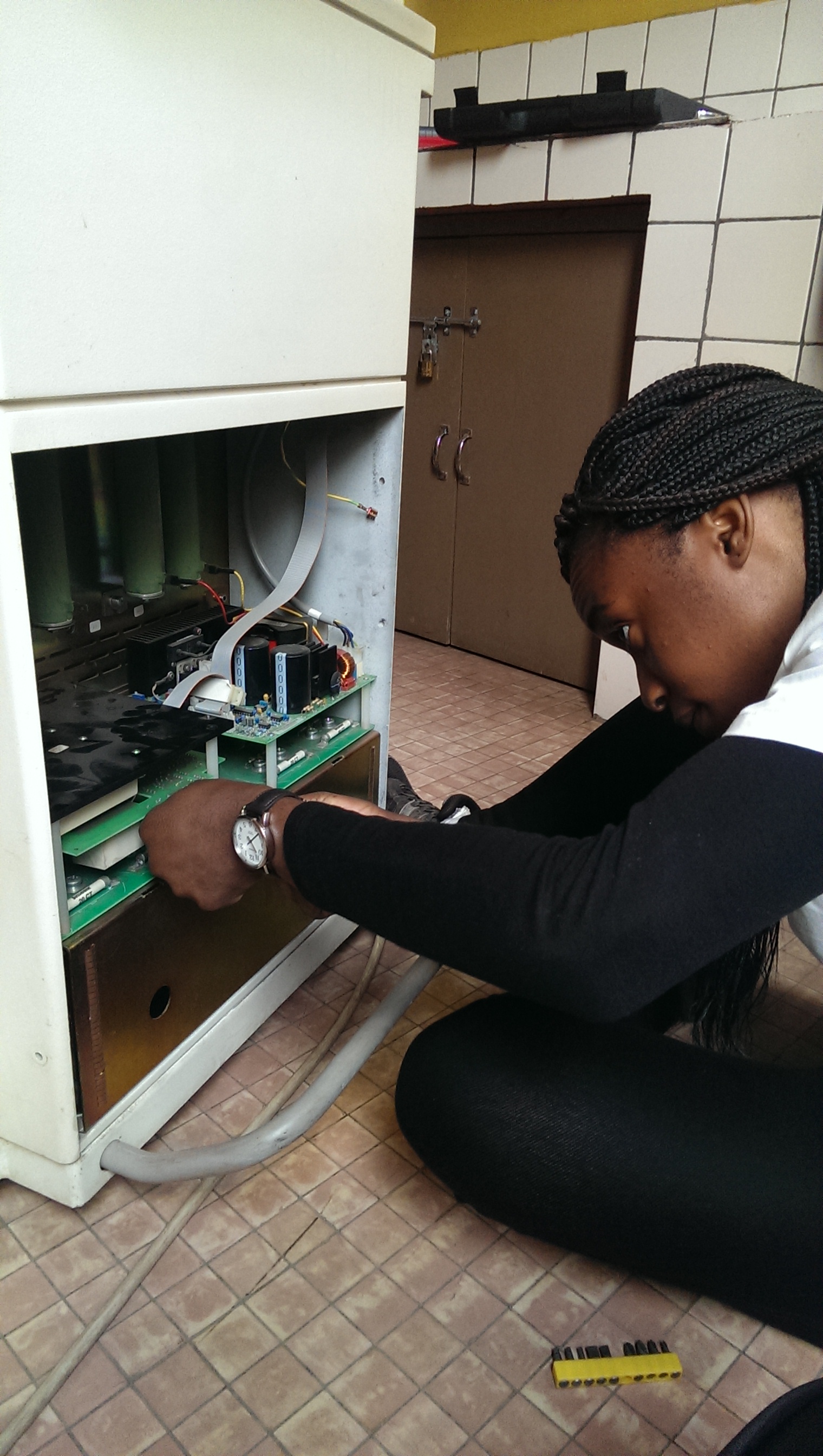
Between projects and after work I always make a point to talk to our BMET about what the needs of the hospital are and what it means to have his position.He is always very open and honest with us. It is clear that his situation is unique since he has so much to oversee by himself. When we talked about prioritizing crisis at the hospital and clinics he brought up a good point- what do you do when many of the clinics and hospital have a serious problem all at once? His example was a power outage (which happens about a half dozen or more times each day here). He explained that when the power goes out and generators fail to come on that patients are at risk at all of the clinics and hospital. Also, when the power comes back on fuses can blow causing other big issues that require his immediate attention. How do you decide which patients are a priority? This is an impossible task. Another big issue we have discussed is spare parts. Anytime he is in need of a spare part he has to either try to find it in town (which is nearly impossible in this small town) or order it through the Ministry of Health. This process can take months or never go through at all. This is incredibly frustrating when a machine only needs a cheap part, but the western world is too hard to reach to order it. To make matters seem even worse, the Ministry of Health will often send new expensive machines since it is referral hospital rather than order the cheap spare part.
I am continuing to practice and build my Kinyarwanda, learn how to fix equipment with limited supplies, train others in another language, and understand what it means to work here in Rwanda.
Each day I monitor my growth by reflecting through blog posts. Tracy and I also keep a detailed excel sheet of the equipment we have fixed and serviced. But more than that, I see the way this experience is already changing me. I perceive “broken” devices differently now. Instead of thinking that broken means that it is trash, I see broken as a challenge- how can I help this machine to work again? I am also growing in what I deem necessary for daily living. We often do not have running water or electricity here (I am currently writing this in the dark during a daily power outage), but somehow we get along just fine. Is it so ridiculous to think that maybe expecting constant running water and power is ridiculous rather than the other way around? My growth so far is more than I could have imagined and I do not see it slowing any time soon.
I have been very proud of some of the fixes my partner and I have accomplished so far. On the first day our BMET handed us a centrifuge and mixer and walked out of the lab. I think he was testing us, but we got right to work. We pulled out the welder on the first day and came up with a creative fix my salvaging a power switch from another machine to fix the centrifuge. I was also proud of our ability to tackle a portable x-ray safely. We have truly done a lot of work so far and been able to help the hospital staff help the patients more efficiently.
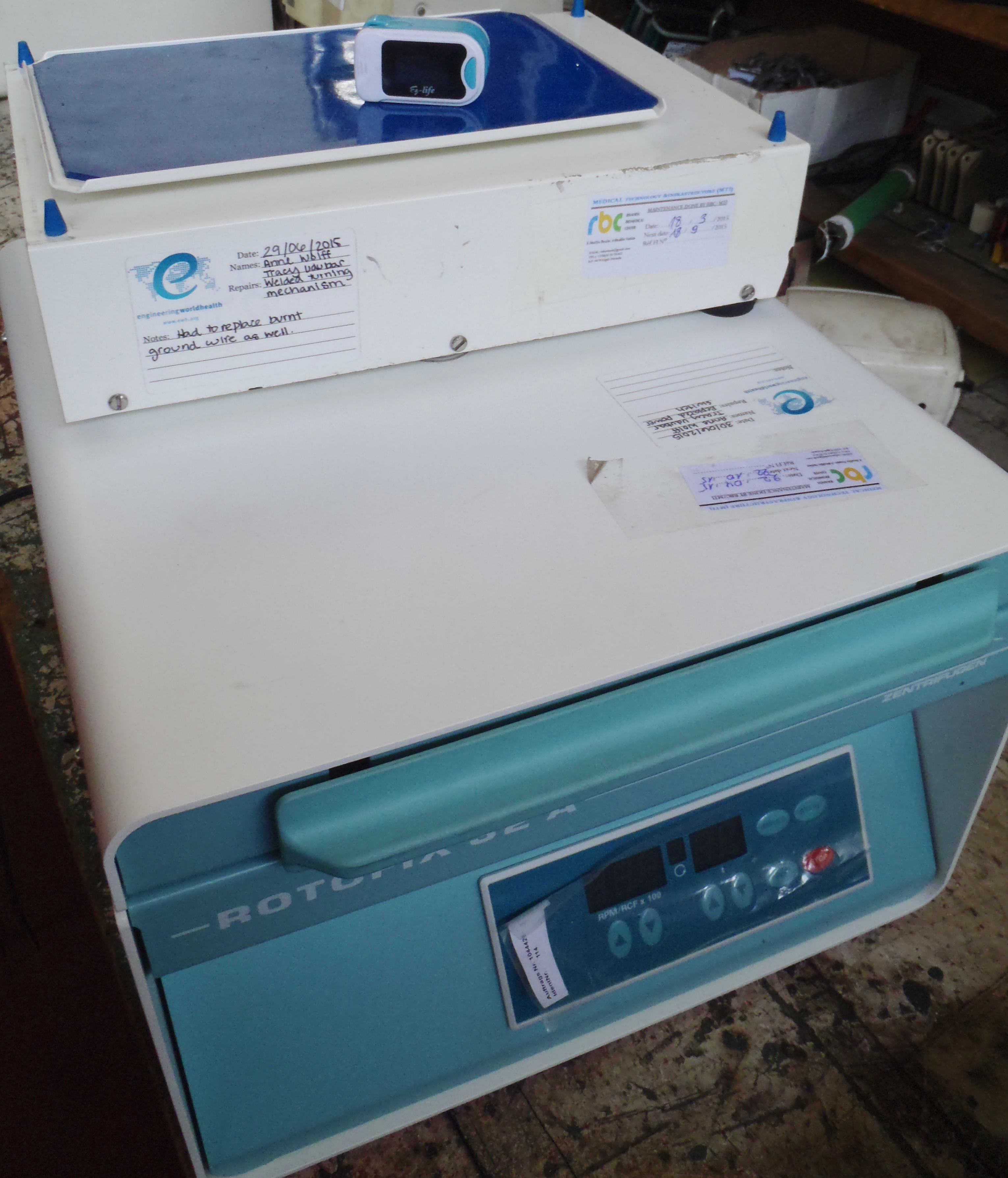
I have learned a lot about communication and technical skills so far. These skills are very important for my future and easily transferable. I am gaining intuition about medical devices and electronic repairs. This will be endlessly helpful. I am also gaining more experience working in groups and working with others that are different from me. I work with Tracy every day as well as my BMET and others who drop in to help. The pace of work and approach to problems is often very different here but I am quickly adapting where I need to.
I still have four more weeks left here in Musanze so there are many more lessons to come!
